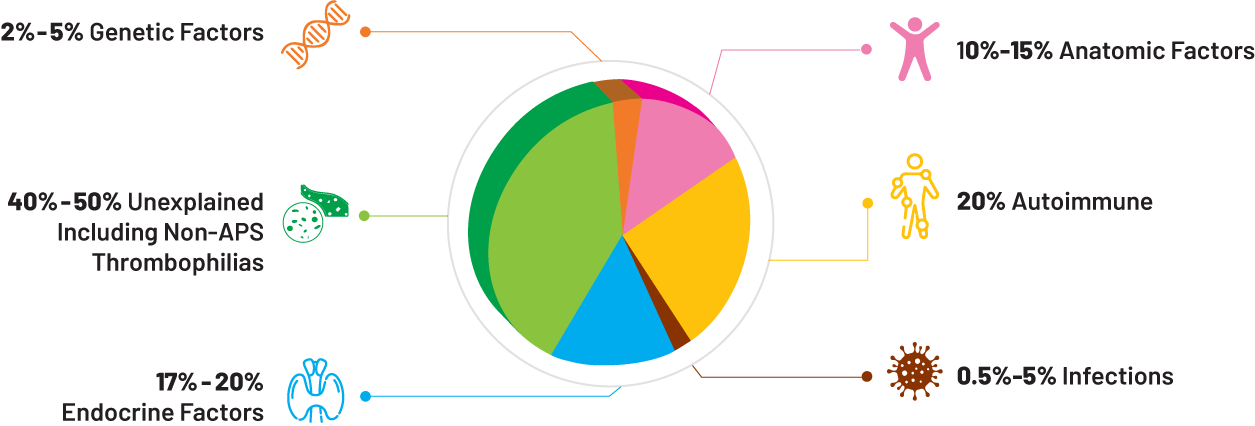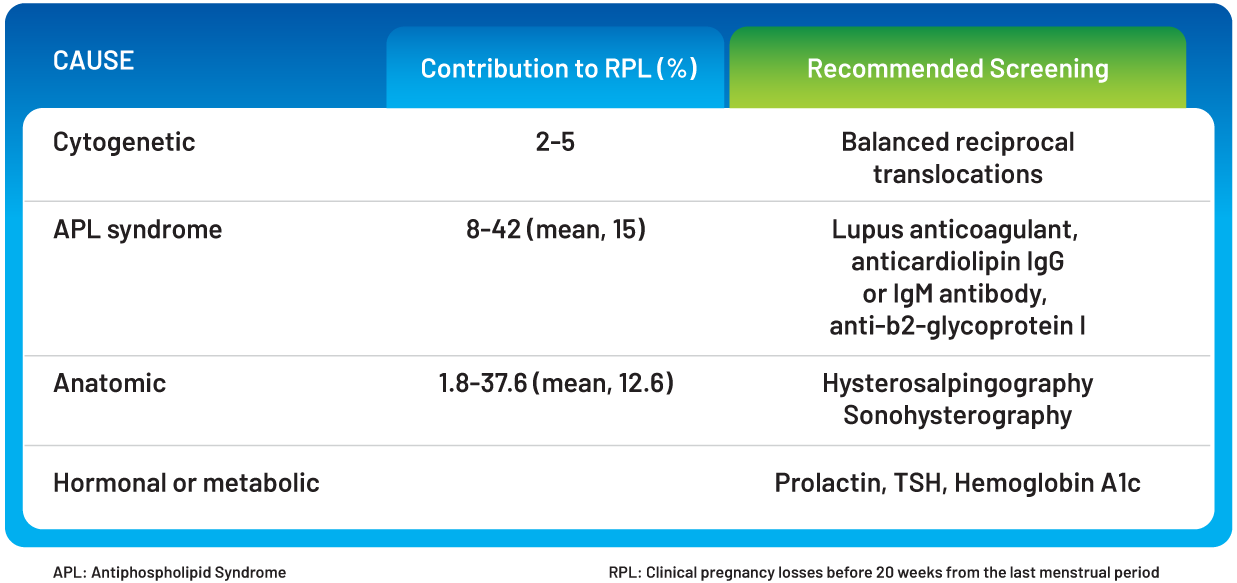
Ref: Rev Obstet Gynecol. 2009 Spring;2(2):76-83
Practice Committee of the American Society for Reproductive Medicine.

| Cause | Contribution to RPL (%) | Recommended Screening |
|---|---|---|
| Cytogenetic | 2-5 | Balanced reciprocal translocations |
| APL syndrome | 8-42 (mean, 15) | Lupus anticoagulant, anticardiolipin IgG or IgM antibody, anti-b2-glycoprotein I |
| Anatomic | 1.8-37.6 (mean, 12.6) | Hysterosalpingography Sonohysterography |
| Hormonal or metabolic | Prolactin, TSH, Hemoglobin A1c |
APL: Antiphospholipid Syndrome
RPL: Clinical pregnancy losses before 20 weeks from the menstrual period


Consensus opinion on RPL by Practice Committee of the American Society of Reproductive Medicine
Lab Criteria:
ESHRE guidelines strongly recommends TSH teating in women with RPL. Based on a high prevalence of subclinical hypothyroidism and thyroid auto immunity in women with RPL and potential of treatment options, testing for thyroid function is recommended.


ESHRE guidelines on RPL suggest CMA analysis for POC samples
For genetic analysis for the pregnancy tissue, array-CGH is recommended based on a reduced maternal contamination effect

The Practice Committee of the American Society for Reproductive Medicine recommends:
Parents should undergo periphal karyotyping in order to detect any balanced structural chromosomal abnormalities
